"I started hallucinating": local fell runners complete gruelling 268-mile Montane Spine Race
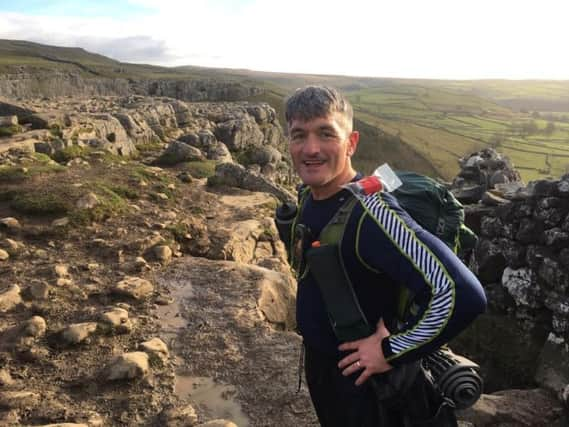

Tracing the winding backbone of England from the quaint Norman village of Edale in Derbyshire's Peak District up to the isolated Romani outpost of Kirk Yetholm just across the Scottish border, the Montane Spine is widely considered one of the Europe's most brutal events, tasking runners with a 431km slog through some of the UK's most stunning landscapes.
With just over six days to complete the challenge, participants cover an average of 45 miles per day whilst navigating a collective ascent of 13,330m - the equivalent of scaling The Shard on top of Ben Nevis on top of Greece's Mt Olympus... on top of Everest. Last year, more people pulled out midway through the race than finished it.
Advertisement
Hide AdAdvertisement
Hide Ad"It's a matter of keeping going, my feet just made it hard - it was like having a knife shoved in your heel with every step," says Paul Redman (46). "At the end of the first day, I was delirious and ready for quitting. It was really hard to navigate, it was pitch black, sideways rain, I was disoriented, I started hallucinating. At the second checkpoint, I just sat down and thought 'I can't carry on.' I had a text from my wife which gave me a kick up my backside!"
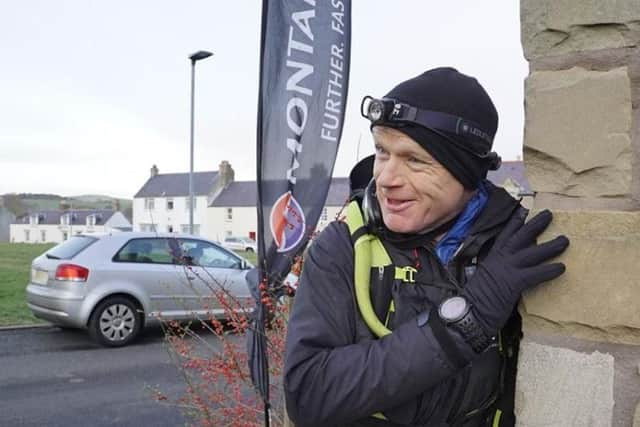

Paul did eventually finish the race, posting a time of five days, 16 hours, and one minute. A member of Trawden Athletic Club from Colne, Paul has countless ultra-marathons under his belt and has completed the affiliated 108-mile Spine Challenger a few times before, but - operating on just 13-and-a-half hours sleep - found the Montane Spine another level.
"This was the toughest thing I've done in my life," he said.
From moorland peat in Brontë country to the famous wall of the Border Hotel at the finish line which competitors kiss to mark the end of the pain, the Montane Spine's scale is unimaginable. The race's official websites prescribes mountain marathons as training and extols the virtue of larger shoes to accommodate swelling feet. It also quite ominously recommends "a spare pair of big boy/girl pants - you may need them."
Advertisement
Hide AdAdvertisement
Hide Ad"I just kept telling myself to put one foot in front of the other," explains John Boothman (56) from Barnoldswick. "Half of the race is mental strength; I had massive sleep deprivation but the further you get into the race you get the less you want to give up. At one point I lent on a gate and fell asleep. I'm not sure how long for."
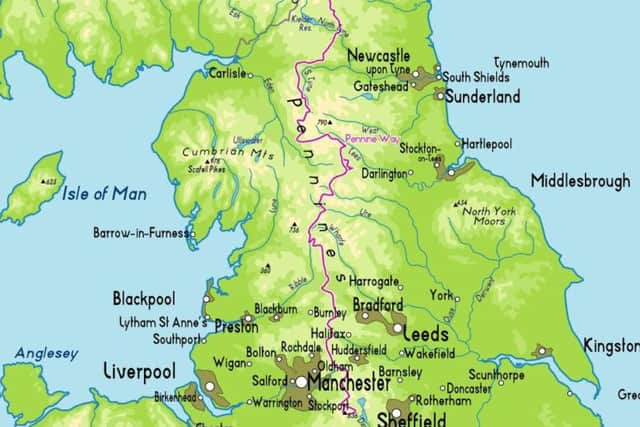

Despite having only discovered running at the age of 49, John has become a vastly experienced athlete with the Barlick Fell Runners. Faced with wind, rain, cold, hallucinations, blisters, and swollen feet during his five days, 46 minutes, and four seconds out on the trail, John had just seven-and-a-half hours sleep across the five days and is only just starting to walk again after his eighth-place finish.
"My feet and my brain were the worst things," John said. "It has a massive effect on your mental state and it's taking a while to get back into normality. I'm over the moon with the eighth-place finish; my initial goal was just to finish. It's quite emotional when you get to the finish line... my wife was there to meet me and there was a lot of people willing me on. I won't forget that for a very long time."
Paul added: "If you looked at the big picture there's no way you'd start. Mentally, I wanted to get to each checkpoint, have something to eat, have an hour's sleep, then see how I felt. Even off an hour's sleep, your mind resets and you're ready again, it's bizarre.
Advertisement
Hide AdAdvertisement
Hide Ad"At the time, I was going through hell, but the people you meet... we call it 'The Spine Family'," he continued. "I finished the race with a small group who are like my best mates now. Even though you've only known them for a few days, you become like a family. When you're climbing with -20°C wind chill with sideways snow and you can't do more than one mile an hour, something bonds you. I've been missing them."
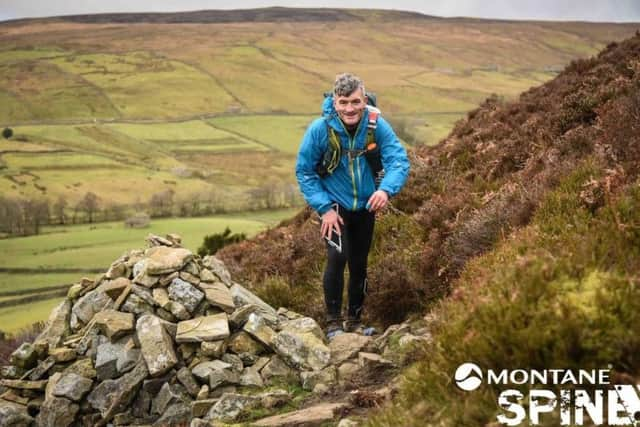

John agrees. "The camaraderie out there was incredible," he said. "I've got some incredible memories and met some incredible people. On the last day, a Swedish guy called Magnus who I'd spent time with along the way had nearly stopped moving. I gave him my poles because he was struggling; you really want to see others succeed because it's such a long way."
Since finishing, John has been inundated by messages asking if he has been raising funds and has since set up two JustGiving pages for causes close to him: Pendleside Hospice and Upper Wharfedale Fell Rescue Association.
"I didn't want to fundraise beforehand because it's added pressure and given the enormity of the challenge I was scared," John said. "I didn't want to not complete it and feel like I'd let people down. Pendleside Hospice gave us a lot of help when my dad was dying, and over the past few years two close friends have died there.
Advertisement
Hide AdAdvertisement
Hide Ad"None of us ever want to have to use the facilities, but if we are in that position, it's an invaluable place," he added.
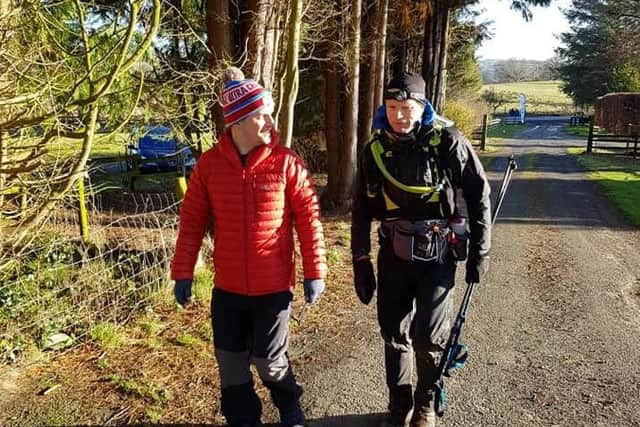

Despite everything, for Paul it's a matter of 'when' he'll do to race again, not 'if'. In the meantime, he says he's keen to volunteer because of the sense of community generated by such an intense experience.
"I turned 46 during the race," Paul said. "I didn't tell anybody, but I'd been rushing back to the checkpoint to get signal to call my kids because it was the first time I'd been away from them on my birthday.
"I got in and they started fussing over me, but I said I just wanted to call my kids because it was my birthday. Someone picked up on it and got a Swiss roll with a candle. They all sang me Happy Birthday."